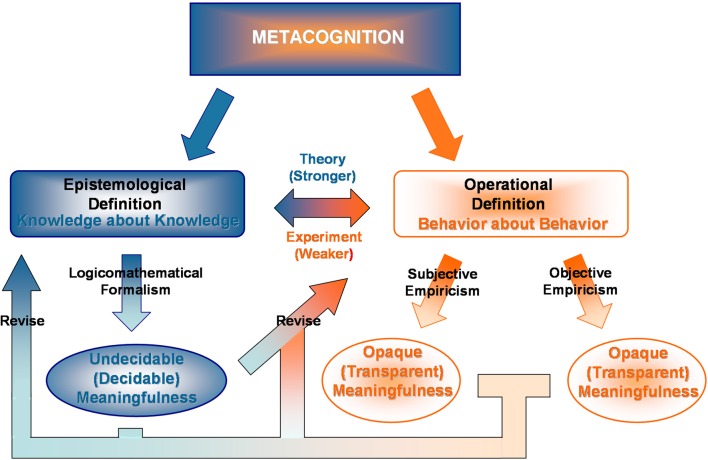Figure 1.
Diagram outlines relationship of metacognition undecidability and opacity with epistemological and operational definitions, where decidability of logicomathematical formalism is a stronger, more global condition than transparency of empiricism. Interestingly, the nested referent structure of epistemological and operational definitions may also lead to the paradox that not only is the meaningfulness of metacognition undecidable, but so too is the meaningfulness of (explicit and implicit) reasoning used to reach that conclusion. Anti-mechanistic, -algorithmic, or -logic views of animal and human intelligence find varying degrees of support from noted thinkers in physics (Penrose, 1994), logic (Kreisel, 1967), philosophy, (Lucas, 1962) and psychology (Kahneman et al., 1982). Though a staunch anti-Intuitionist and pro-mathematical Platonist, Gödel (1951/1995) believed the human mind could overcome with empirical certainty such circumstances as “absolutely unsolvable Diophantine problems” and other undecidable problems suggestive of his theorems.

